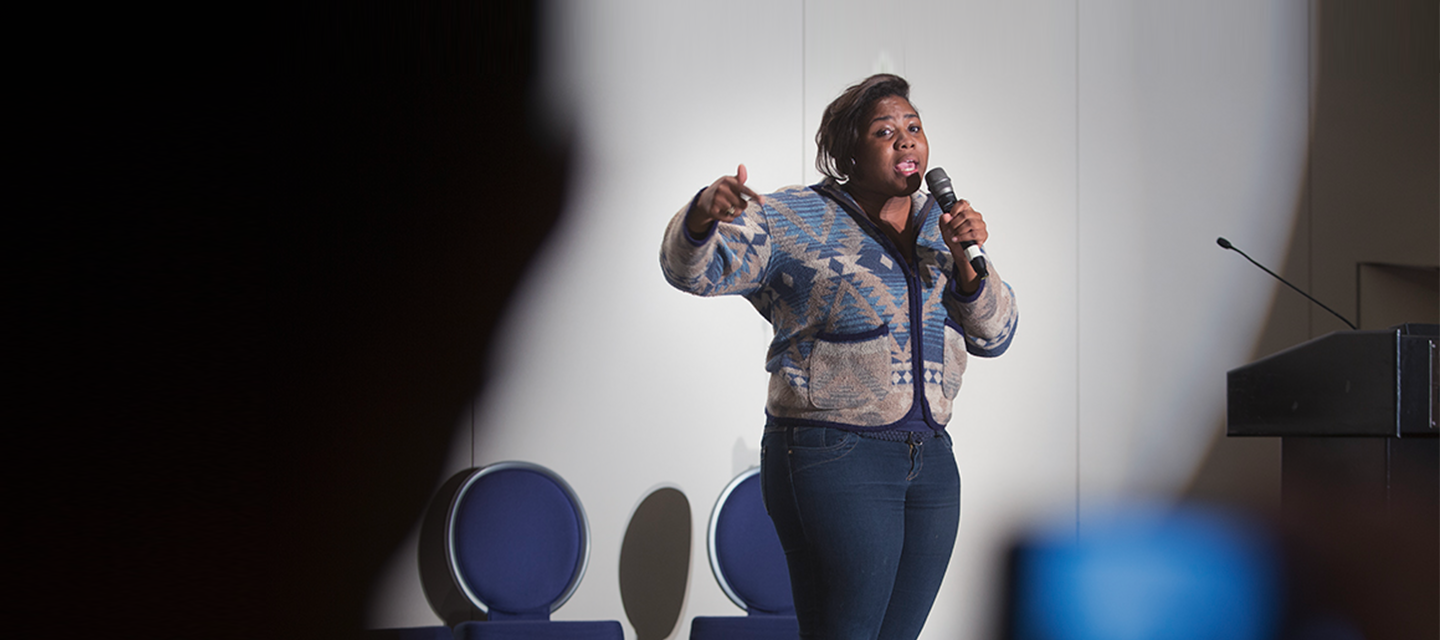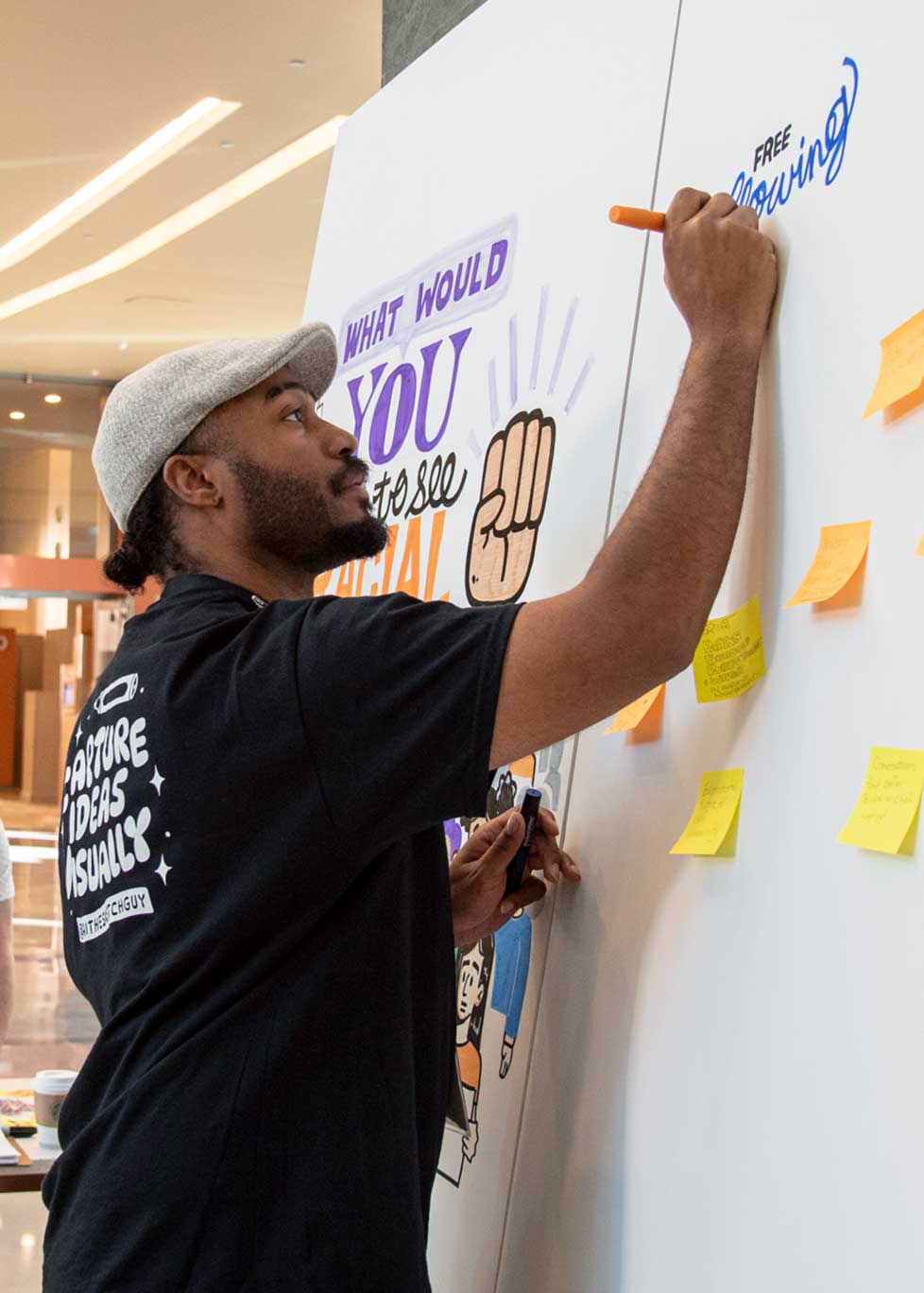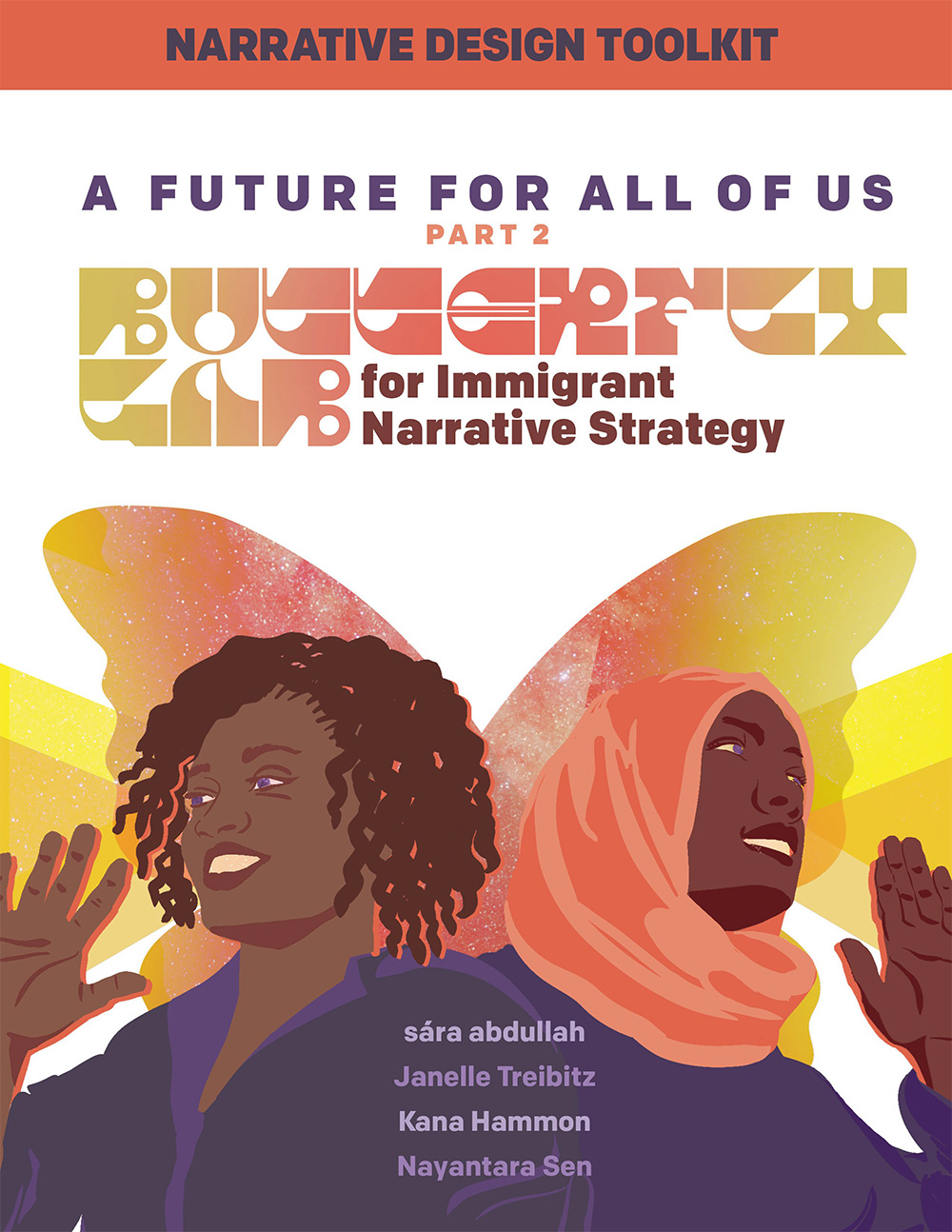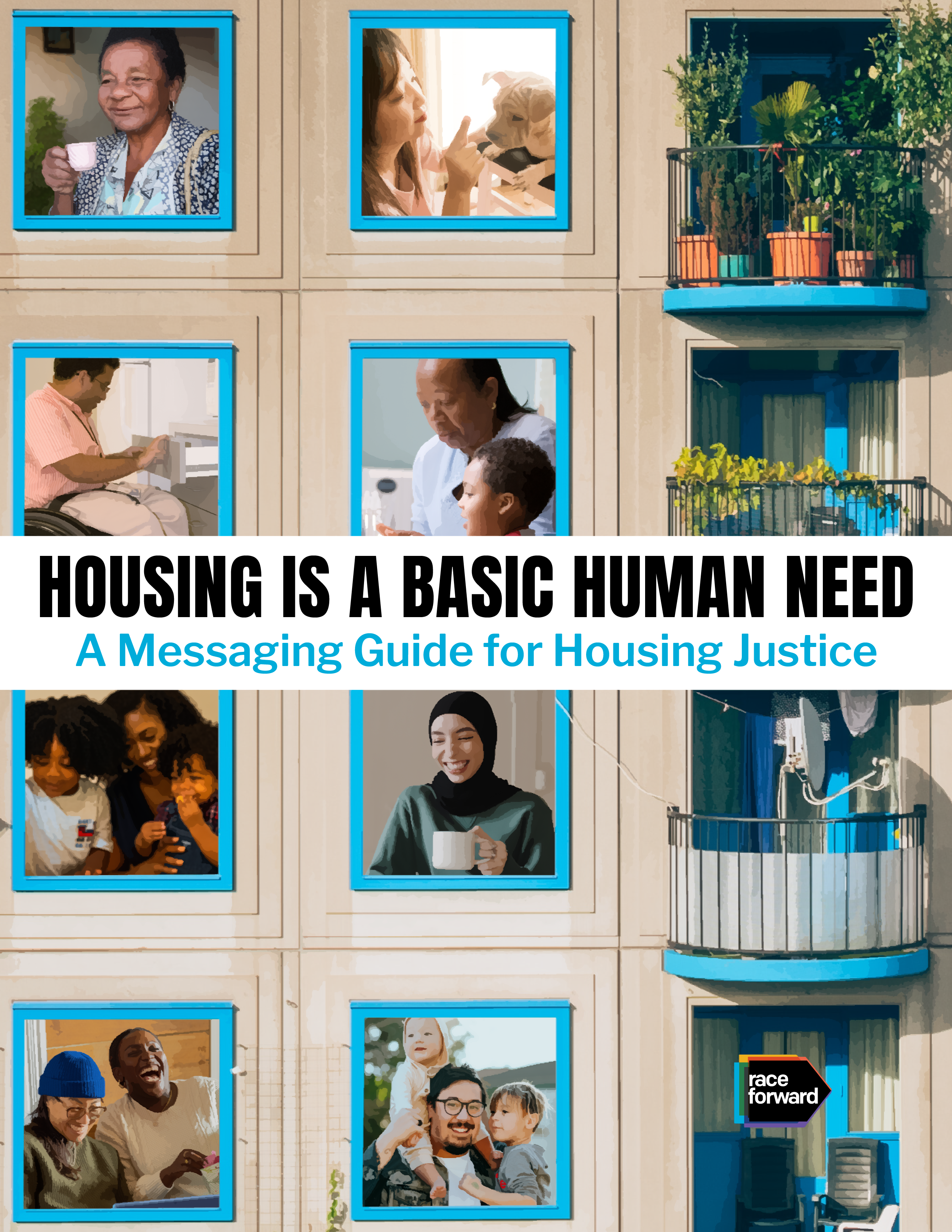
Narrative is power.
The stories we tell, the perceptions that take root in our minds, and the clichés we repeat, all play a significant role in shaping our views and, ultimately, the practices, policies and systems we support.
During the past 60 years, there has been a coordinated, well-resourced effort by those desiring to maintain power and wealth for a few. These forces seek to popularize a set of false narratives that maintain racial inequities and limit democracy.
To make our vision of a just, multiracial democracy a reality, we need to create new narratives that show what is possible when we join together to create a better future for all. In order to seed our narratives, they must reach millions of different people, over time, across many voices, and across a variety of mediums.
This is what we call narrative strategy.
Narrative strategy around racial equity shapes how people think about:
- What race and racism are
- The role that racism plays in our society
- How racial inequities have been created and maintained
- What racial progress means for us individually and as a society
- The role of government in creating and maintaining racial inequities
Seeding these new narratives is a long-term project that requires us all to take part.
Narrative Training
Race Forward offers workshops and coaching to help teams and organization harness narrative strategy. Our training also provides guidance on how to partner with others to make your narratives clearly understood and deeply held by your target audiences

Narrative Toolkits

The Butterfly Lab Narrative Design Toolkit
This guide will you get started in thinking about how to articulate your narrative strategy, and design and implement your narrative projects. Whether you are executing messaging campaigns, social media campaigns, videos, art installations, street theater, deep canvassing, direct actions, or more, this field-tested tool will help!

Housing Is A Basic Human Need Messaging Guide for Housing Justice
This messaging guide is a resource to help renters and tenant organizers, homeowners, community leaders and housing policy advocates — and everyone who cares about housing as a basic human need — talk about housing justice in a way that gets your neighbors excited, wins policy change, and shifts narratives to advance a vision of racial justice and homes for all.
